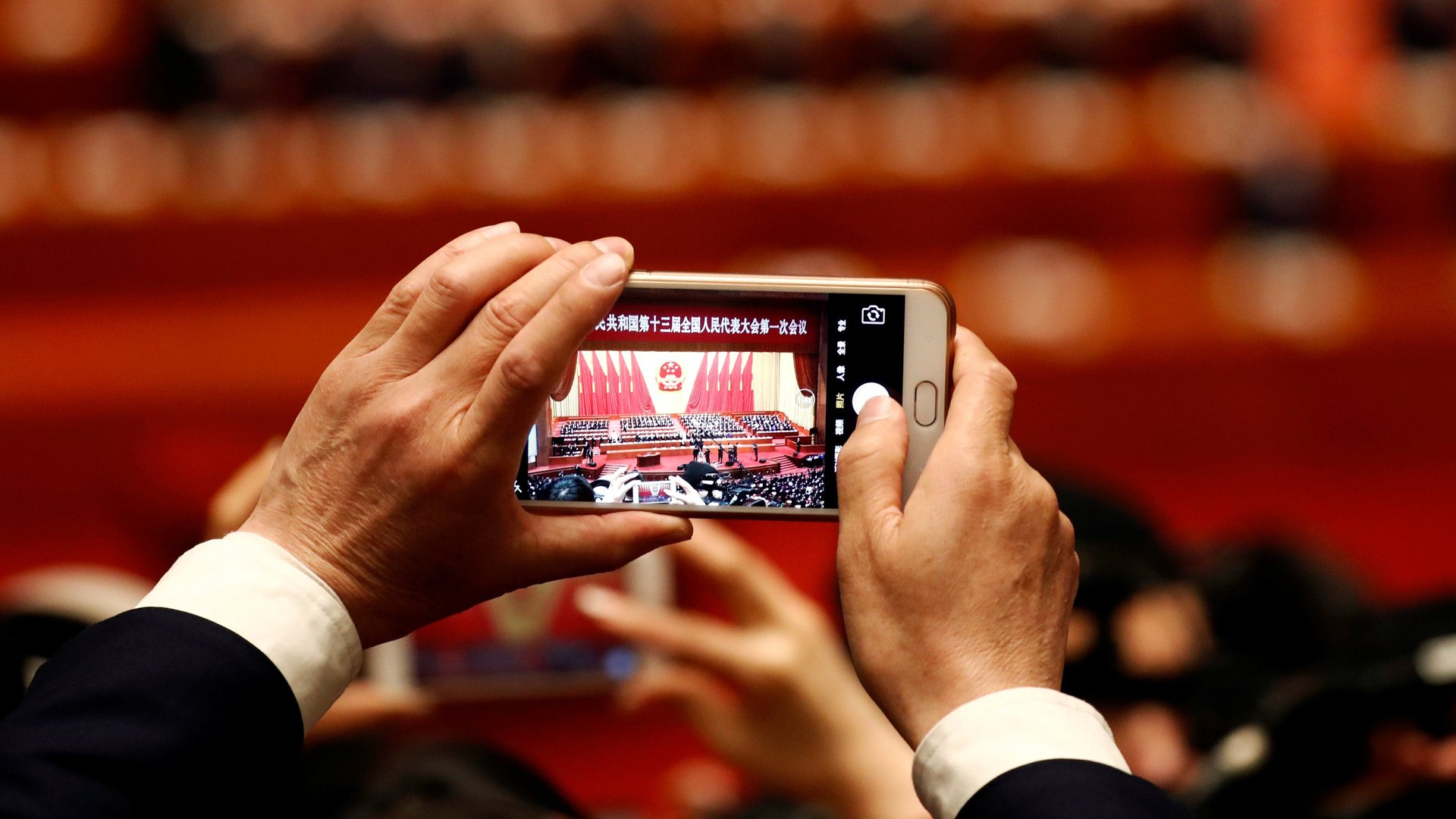The surest sign that China thinks Covid-19 is under control: Its biggest political shindig is back
After being postponed due to the coronavirus outbreak, the most important event in China’s political calendar now has a new date.


After being postponed due to the coronavirus outbreak, the most important event in China’s political calendar now has a new date.
China said today that it would begin its annual Two Sessions meeting on May 21, when thousands of delegates to the National People’s Congress (NPC), the legislature, as well as to the Chinese People’s Political Consultative Conference, the top political consultative body, gather in the capital for 10 days. The event was originally scheduled for early March.
According to state news agency Xinhua, the Standing Committee of the NPC decided to hold the gathering due to the “strong leadership of president Xi Jinping,” as well as the “great efforts” made by the people of China to contain the virus, allowing life to return to normal.
With the number of new reported coronavirus cases slowing to a trickle in recent weeks in China, most cities have ended their lockdowns, with factories also starting to resume operations. The focus of the pandemic has now, however, shifted to the north of the country, where there are fears of a new outbreak due to people crossing into the country from Russia, with new restrictions on movement imposed on cities such as Harbin. A spate of recent new cases in Beijing also forced gyms to shut down once again.
The decision to delay the Two Sessions was the first in more than two decades, since Beijing adopted the March schedule in 1995 for the event. During the meetings, the leadership unveils its target for GDP growth for the year, presents a road map for the year ahead, and closes with a news conference at which premier Li Keqiang takes vetted questions from Chinese and foreign journalists. It’s mostly seen as a carefully scripted political performance that is nevertheless highly anticipated and closely covered, with the GDP target a long-standing political exercise that is used to shore up support for the Communist Party.
The major focus for the Two Sessions this year will be whether Beijing sets a GDP target, amid calls from prominent voices including Ma Jun, an adviser to the People’s Bank of China, to drop the exercise for 2020. China this month reported an unprecedented 6.8% drop in GDP on-year in the first quarter, signalling that serious economic pain lies ahead and constraining the ability of policy makers to set any ambitious GDP growth targets.